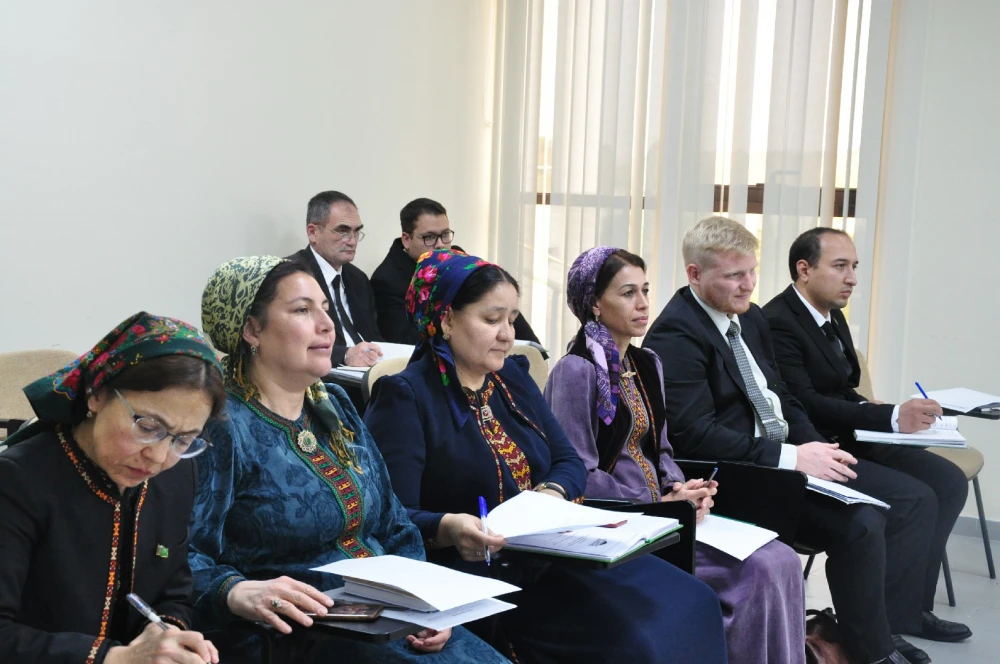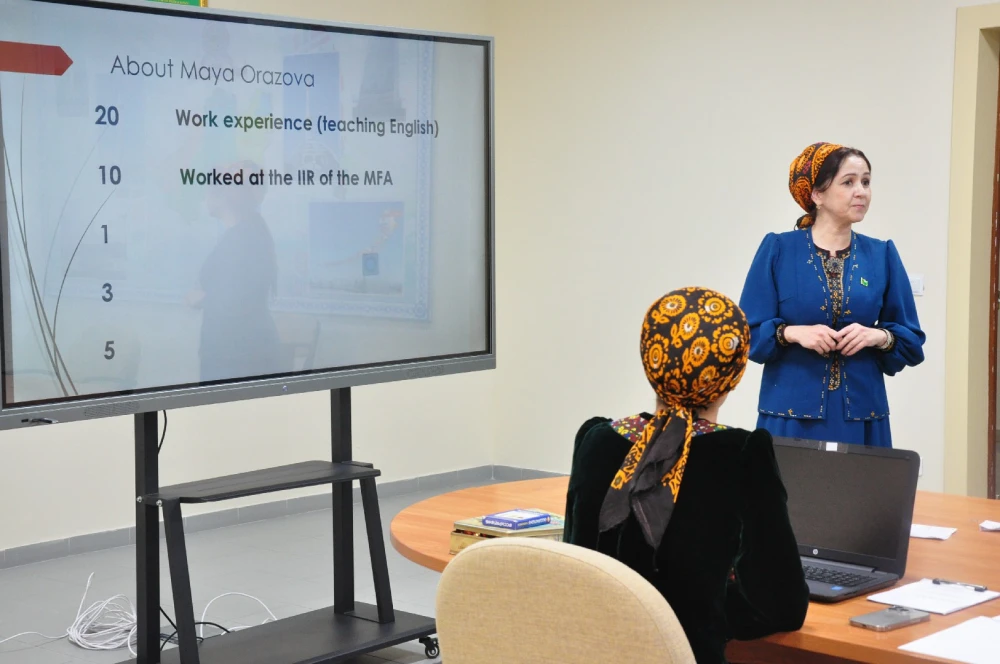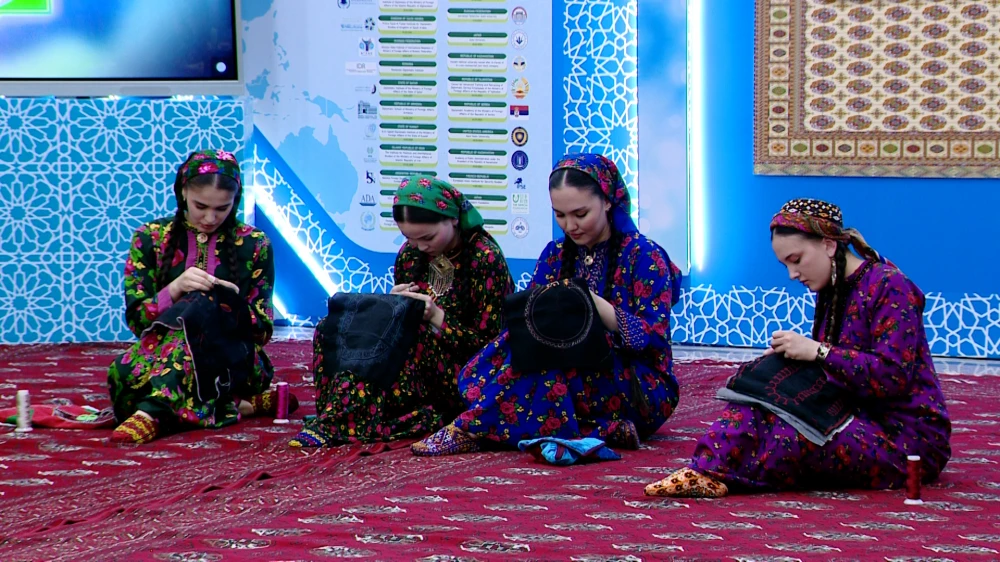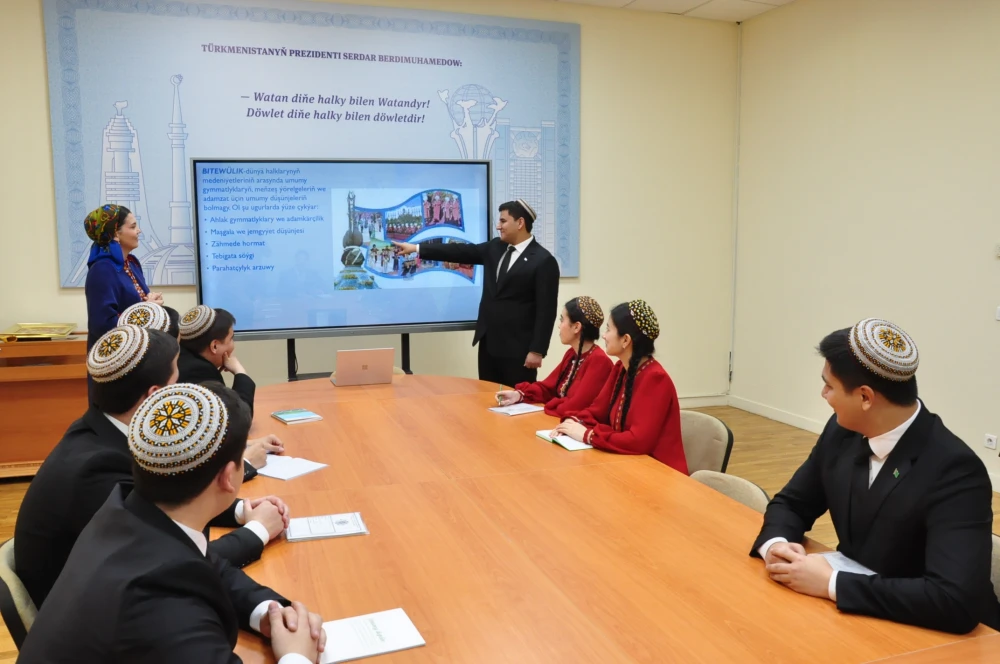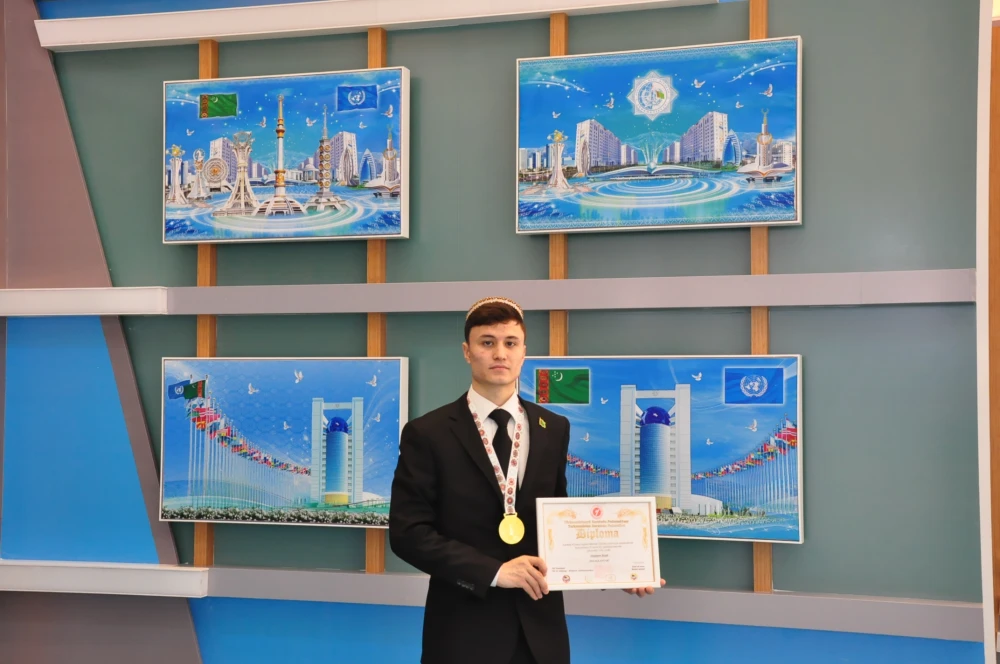19/11/2024
906
WORKSHOP “INNOVATIVE STRATEGIES FOR TEACHING METHODS” WAS HELD
On November 19, 2024, a workshop entitled “Innovative Strategies for Teaching Languages” was held at the institute of International Relations of the Ministry of Foreign Affairs of Turkmenistan.
The workshop was organized by Maya Orazova, Jahan Babayeva, Chemen Wekilova instructors at the Language Learning Department of International University for the Humanities and Development. The event brought together educators, language experts, and technology enthusiasts, all eager to explore new methods that can enhance language learning in diverse classrooms. With a growing emphasis on creating more engaging, personalized, and effective language learning experiences, the workshop offered a wealth of insights and practical strategies that educators can immediately apply in their teaching.
The workshop, led by a panel of experts in language education and instructional technology, offered a comprehensive look at the changing landscape of language teaching. Here some innovative strategies which were discussed during the workshop:
Blended Learning Approaches: one of the central themes of the workshop was the integration of blended learning into language teaching. Blended learning combines traditional classroom instruction with digital tools and resources, creating a more flexible and dynamic learning environment. Participants learned how to effectively use platforms like Duolingo and Memrise to reinforce vocabulary, grammar, and listening skills outside the classroom. Teachers were also shown how to use collaborative online spaces, such as Google Classroom or Edmodo, where students can engage with peers and practice the language in real-time.
Gamification to Enhance Engagement: another exciting part of the workshop was the discussion on gamification—transforming learning activities into game-like experiences to increase student engagement and motivation. Techniques such as point systems, badges, and leaderboards were explored as ways to make language learning more fun and competitive. By turning lessons into interactive games, educators can make even the most complex language concepts more approachable and engaging for students.
Personalized Learning Paths: the workshop also emphasized the importance of personalized learning in language acquisition. With the help of data-driven tools and adaptive learning platforms, teachers can tailor lessons to each student’s individual needs. For example, platforms like Rosetta Stone and Babbel adapt to a learner's proficiency level, ensuring that students receive lessons that match their pace and ability. This personalized approach not only helps students learn more efficiently but also fosters a sense of autonomy in their learning journey.
Task-Based Learning: task-based language teaching (TBLT) was another highlight of the workshop. This approach focuses on real-world tasks rather than grammar drills, which encourages learners to use the language in practical, everyday situations. Teachers explored various task-based activities, such as role-playing, problem-solving tasks, and collaborative projects, which allow students to practice language skills in a meaningful context. These activities not only enhance language fluency but also promote critical thinking and teamwork.
Educators were introduced to the use of authentic materials, such as news articles, podcasts, films, and music, which provide students with exposure to real-world language usage.
This workshop not only offered practical strategies for immediate use but also inspired educators to think creatively and push the boundaries of traditional language teaching methods. By adopting innovative approaches, we can make language learning more engaging, effective, and enjoyable for students of all ages. These methods are transforming language education. Teachers, whether they are using advanced technology or creative tasks, are empowered to make a meaningful difference in their students' language learning journeys.
Annagul HEKIMOVA,
Instructor of the Department of World languages
of the Institute of International Relations
of the
Ministry of Foreign Affairs of Turkmenistan.
